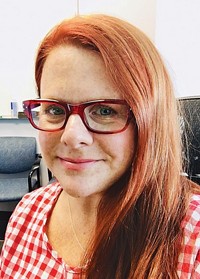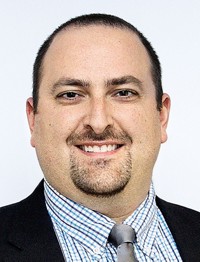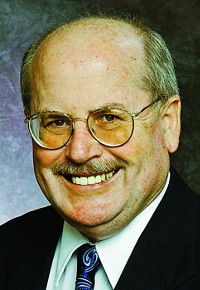Advertisement
Grab your lab coat. Let's get started
Welcome!
Welcome!
Create an account below to get 6 C&EN articles per month, receive newsletters and more - all free.
It seems this is your first time logging in online. Please enter the following information to continue.
As an ACS member you automatically get access to this site. All we need is few more details to create your reading experience.
Not you? Sign in with a different account.
Not you? Sign in with a different account.
ERROR 1
ERROR 1
ERROR 2
ERROR 2
ERROR 2
ERROR 2
ERROR 2
Password and Confirm password must match.
If you have an ACS member number, please enter it here so we can link this account to your membership. (optional)
ERROR 2
ACS values your privacy. By submitting your information, you are gaining access to C&EN and subscribing to our weekly newsletter. We use the information you provide to make your reading experience better, and we will never sell your data to third party members.
Environment
Join Us In Greening Our ACS National Meetings
by Willem R. Leenstra, Chair, Committee on Meetings & Expositions
July 27, 2009
| A version of this story appeared in
Volume 87, Issue 30
What a year! I think we can all agree that 2009 will be a year remembered for its many far-reaching changes. Headlines trumpet widespread and calamitous changes in global economies, massive changes and reforms across our banking and mortgage institutions, and unprecedented changes in our automotive industries, just to name a few.
Fortunately, not all of 2009's changes have been negative. With good reason, and none too soon, science is leading us to the conclusion that climate change may be the single biggest threat to humanity. Although this message is not new, it has never resonated before like it is resonating now. The most positive change this conclusion is bringing about, at least from my point of view, is the increasing awareness of the need to reduce, reuse, and recycle.
As scientists, it is incumbent upon us to lead the charge and lead by example. In addition to improving our personal daily habits so as to reduce consumption, we must also find ways to reduce the environmental impact of ACS national meetings. I am pleased to let you know that the ACS Committee on Meetings & Expositions (M&E) has put minimizing the environmental impacts of national meetings at the top of its planning objectives. Working with the ACS Committee on Environmental Improvement and ACS staff, M&E members are continually examining ways to reduce, reuse, and recycle meeting materials—and whenever possible, eliminate the use of paper altogether.
According to the Environmental Protection Agency, paper made up about 33%, or 82 million tons, of the more than 250 million tons of trash generated in the U.S. in 2007.
To minimize ACS's contribution to this waste stream, the society has abandoned its tradition of printing about 80 extra pages of technical programming in C&EN, choosing instead to publish the same information only on the Web at www.acs.org. Although some ACS members admit to a preference for the printed version because it is handier and easier to read while on the go, we all must agree that providing the information on the Web is the smarter, environmentally friendly choice that also offers cost savings. Cutting down on paper use not only addresses the immediate goal of reducing waste, but it also has other benefits: For example, it reduces the energy and natural resources used to produce paper and eventually recycle it.
With regard to paper, you may have noticed that there are fewer signs and placards at national meetings. When signs are necessary, though, they are now made with recyclable substrates without laminate or glue that can impede recycling. M&E will, of course, make signs that can be reused and has begun to plan every printing effort with reusability in mind.
In general, paper and paperwork will be reduced in every stage from meeting registration to paper packets to payment options that favor electronic processing. Our efforts are being implemented, quite literally, across the board because they apply to all the meeting materials used by the ACS Board of Directors as well.
M&E continues to work with the national meetings general contractor to reuse carpeting, padding, and aluminum and to include these materials in the meeting-wide recycling program. We are also changing our mind-set about temporary structures and are investing in structures that last longer and can be reused many times.
At the upcoming national meeting in Washington, D.C., you'll notice that ACS is no longer providing individual bottles of water at meetings and symposia. In place of individual bottles of water, pitchers of ice water will be provided. So if you want bottled water, please bring your own bottle or reuse the one you received on the airplane. We are also working with the Walter E. Washington Convention Center's food and beverage contractors to provide recyclable or biodegradable flatware, plates, and cups for all events at which food is served.
This is only the beginning and not a complete inventory of everything that is on M&E's to-do list, but I wanted to share some of our current efforts with you. Our file grows thicker by the day, and I invite you to make our to-do list even longer by sending suggestions to the committee; please contact me by e-mail at willem.leenstra@uvm.edu.
In closing, I urge you to attend the ACS fall national meeting on Aug. 16–20 in our nation's capital because I truly believe some of our best and most effective efforts in sustainability have yet to be found. When they are discovered, you can bet that chemists will be involved. So let's get some real alternative energy—the intellectual kind—and put our heads together in the chemical community at the fall national meeting!
Views expressed on this page are those of the author and not necessarily those of ACS.






Join the conversation
Contact the reporter
Submit a Letter to the Editor for publication
Engage with us on Twitter